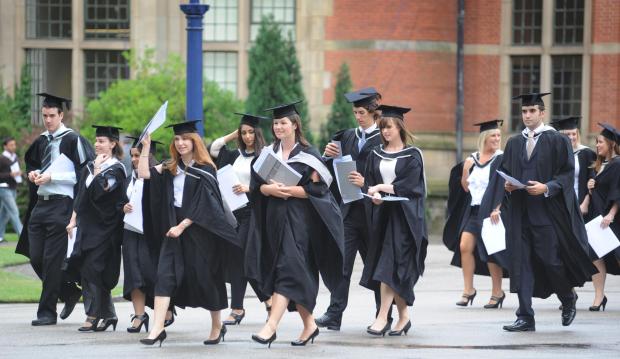
MILLIONS of students and graduates face a 33 percent rise in the interest rates they pay on tuition fees and maintenance loans.
The rate of interest is charged based on the RPI (retail prices index) measure of inflation every March, plus three percent.
Yesterday, the RPI for March was announced as 3.1 percent, meaning some students now face paying interest of 6.1 percent on tuition fees and maintenance loans.
This hike in rates of interest will require effect from September for the 2023/18 academic year.
At the moment, students are paying interest of 4.6 percent interest – the March 2023 RPI figure of 1.6 per cent, plus 3 per cent.
That means students and graduates who're still paying down their student finance might find their bills go up by around a third (or 33 per cent).
Interest is charged while students are still at university, but they don't start paying them off until they're in work and earning more than lb21,000 a year.
Under rules introduced in 2012, students still their studies at university, and graduates earnings more than lb21,000, be forced to pay annual interest of RPI plus 3 percent on their students loans.
Graduates earnings under lb21,000 only have to pay interest of RPI inflation (3.1 percent).
For students who have been at university between 1998 and 2012, the interest rate (1.25 per cent) will stay unchanged.
Students who started university before 2012 pay less since the rates of interest system was totally different from, and was calculated while using lower of RPI or even the Bank of England Base Rate (0.25 %), plus 1 per cent.
A Department for Education spokesperson said: “The Government uses the List price Index (RPI) to calculate interest on all loans, benefits and pensions.
“Our student funding product is sustainable and fair. No individual might find their monthly repayments rise because of rates of interest increasing.
“Rates are set every year in September and therefore are confirmed before this.”
Martin Lane, managing editor of money.co.uk said: “These new rates make it even less likely students will pay off their loans before it gets wiped after 3 decades.
“For graduates trying to get around the housing ladder or save for their future this increase casts a shadow over their long-term finances – who would like to be paying for university into their 50's? Something really needs to be done relating to this.”

